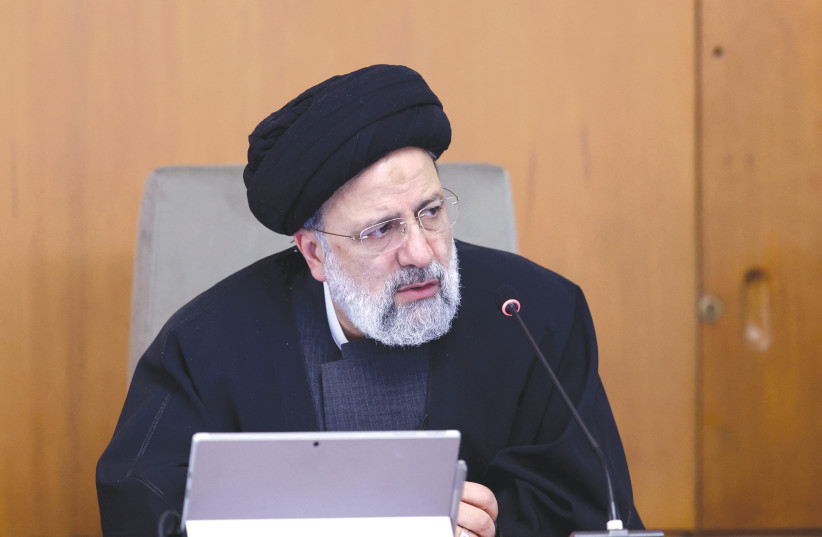Iranian President Ebrahim Raisi is scheduled to visit China this week, hoping to cement ties and generate trade deals for Iran. The regime has already sunk a lot of political capital into working with China, and it has not paid off so far.
This is all part of Iran’s policy shift toward the “East,” working with the Shanghai Cooperation Organization and Russia regarding drone exports. It has, in general, given up on dealing with the West.
According to reports, the Iranian president was invited by Chinese President Xi Jinping.
“Raisi’s three-day visit comes after a joint declaration by Xi and Gulf leaders in December prompted frustrations in Tehran,” the South China Morning Post reported on its website.
“On the sidelines of the Shanghai Cooperation Organization summit in Uzbekistan in September, Xi told Raisi that China viewed its relations with Iran from a ‘strategic and long-term perspective’ and was ready to increase communication and coordination with Iran,” the report said.
Documenting the visit

Iranian pro-regime media are following the visit closely. Tasnim News Agency said the trip is important because it shows Iran is being treated as an “equal,” in contrast to how Tehran feels it is being treated by the West. Iran also respects China, but it does not respect the West and regularly kidnaps or targets Westerners.
Iran also believes that trade with China will result in the development of projects in the Islamic Republic. So far, it appears Iran is disappointed.
Nevertheless, it is looking forward to a “25-year plan” of a new strategic relationship with Beijing, something that will impact the Middle East because China is a rising power in the region.
China is hedging on working with Iran and Gulf countries, increasing its role in the region, something the US is concerned about because these are its partner states. This is relevant for Israel and the Abraham Accords countries.
Another Tasnim article on Monday described Iran’s expectations for the future, including working with countries in Latin America, Central Asia and Africa, which all need Iran’s energy exports, in addition to China.
To further this goal, Iran sent its navy on an around-the-world tour this year, hoping to drum up support and business in South America.
“Iran has announced that in order to promote economic diplomacy, the expansion of interactions with its neighbors, peripheral countries, the region – and countries such as China, India and Russia have been important for Iran, while Tehran, in parallel, expands economic interactions with the countries of Latin America, Central and South America, and it has also put the African continent on the agenda,” Tasnim reported. “Iran is considering interacting with Muslim countries such as Indonesia and Malaysia in the Asian region.”
So while it wants to be treated like an equal, it may turn out that both China and Russia see Iran as a junior partner. Tehran has been exporting drones to Russia, but Moscow might not be providing Iran with what it wants in return.
These are the issues that will be at the forefront of the Iranian delegation members’ minds when they visit this week.
